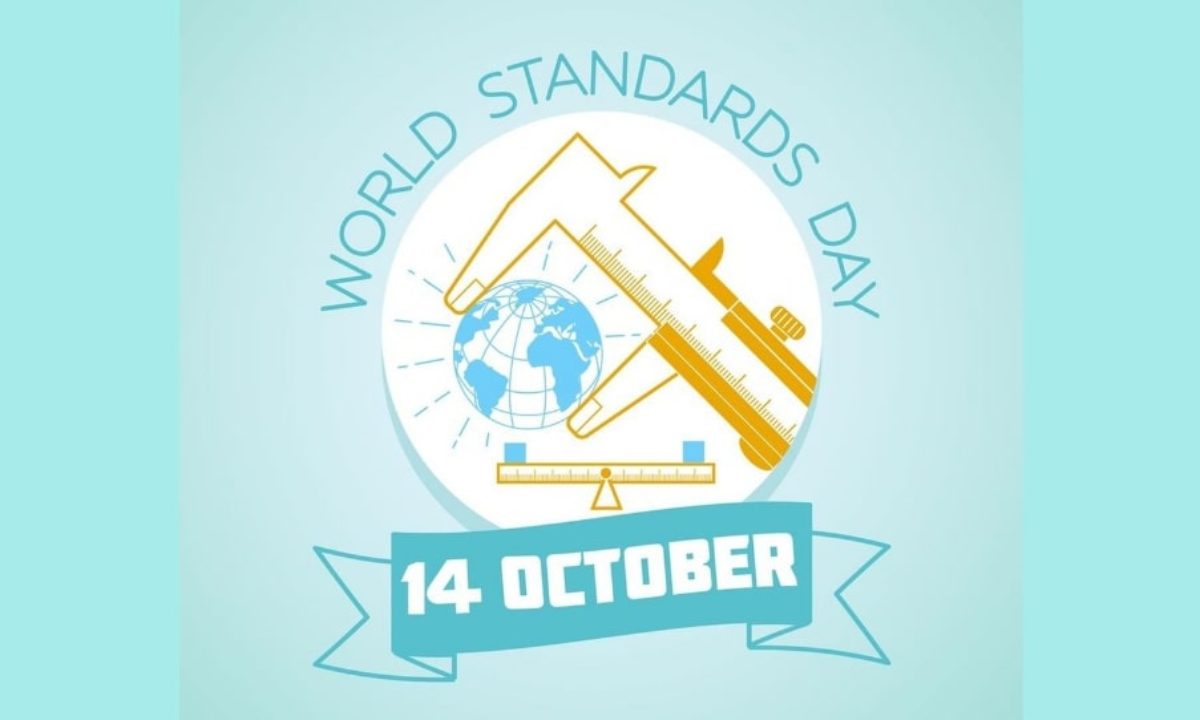 World Standards Day 2025: Celebrating Global Collaboration and Innovation
World Standards Day 2025: Celebrating Global Collaboration and Innovation
Introduction:
Every year, on October 14th, the global community comes together to celebrate World Standards Day. This special day honors the contributions of thousands of professionals working worldwide to develop international standards. These standards help in ensuring safety, interoperability, quality, and efficiency in various sectors, including technology, healthcare, and environmental protection. This blog dives into the history, significance, and role of World Standards Day 2025 in shaping our interconnected world.
What is World Standards Day?
World Standards Day is a celebration of the work done by national and international standardization bodies like the International Organization for Standardization (ISO), International Telecommunication Union (ITU), and International Electrotechnical Commission (IEC). These organizations are responsible for creating and promoting international standards that impact almost every aspect of our daily lives.
The observance aims to raise awareness about the importance of standardization in trade, industry, and consumer protection, while also encouraging global collaboration for sustainable development.
 The Significance of World Standards Day 2025
The Significance of World Standards Day 2025
World Standards Day is a global observance held annually on October 14th to celebrate the essential role that standards play in the modern world. For 2025, the theme will focus on “Innovation through Standards”, emphasizing how international standards drive technological advancements and foster innovation across industries worldwide.
The significance of World Standards Day 2025 can be understood through the following key aspects:
1. Promoting Global Cooperation
International standards enable countries, industries, and organizations to work together by establishing common rules and guidelines. This reduces barriers to trade and facilitates smoother interactions between businesses across borders. As the world becomes more interconnected, global cooperation through standards helps ensure that products, services, and technologies can be used universally without compatibility issues.
For example, without the standardized rules for internet protocols, communication networks, or energy efficiency, the world would face significant challenges in providing reliable, interoperable services. Standards promote a harmonized global market that benefits both developed and developing nations.
2. Catalyzing Innovation
The theme of “Innovation through Standards” emphasizes the role standards play in accelerating the development of new technologies and solutions. By establishing foundational frameworks, standards provide innovators with the guidelines they need to build new products, ensure quality, and meet regulatory requirements in international markets.
For instance, the introduction of 5G technology required a series of detailed standards that enabled seamless global implementation. Without these clear guidelines, the technology might not have been deployed successfully across different regions or by different manufacturers.
3. Ensuring Consumer Safety and Protection
One of the primary goals of international standards is to protect consumer safety. In many sectors, including pharmaceuticals, electronics, food, and automotive, standards are critical to ensuring that products meet safety requirements. These standards help prevent defective products, unsafe practices, or hazardous materials from reaching consumers.
In healthcare, for example, ISO standards ensure that medical devices and pharmaceuticals are safe and effective for use. By adhering to these standards, companies reduce risks to consumers and improve trust in the products they offer.
4. Supporting Sustainable Development
World Standards Day 2025 will also underscore the importance of standards in driving sustainable development. In an era of environmental challenges and climate change, standards related to energy efficiency, waste management, and sustainable manufacturing are more critical than ever.
Standards like ISO 14001 (Environmental Management) and ISO 50001 (Energy Management) provide frameworks that organizations can follow to reduce their environmental impact. As governments and businesses strive for sustainability goals, these standards become essential tools for promoting eco-friendly practices and achieving measurable results.
5. Enhancing Market Access and Trade
International standards facilitate global trade by ensuring that products and services meet universally recognized requirements. When companies adopt standards such as ISO 9001 for quality management or ISO 27001 for information security, they can access new markets without the need to modify their products for each country’s regulations.
This streamlining of trade helps reduce costs and increases market access, benefiting both large corporations and small businesses looking to expand internationally.
6. Building Trust and Credibility
By aligning with international standards, companies demonstrate their commitment to quality, safety, and ethical practices. This builds consumer confidence and enhances the organization’s credibility in the marketplace. Certifications like ISO 9001 or ISO 27001 serve as tangible proof of a company’s adherence to best practices, setting it apart from competitors.
For consumers and businesses alike, standards serve as a mark of trust that ensures products are of consistent quality and meet the expected safety standards, fostering better relationships between companies and their stakeholders.
7. Advancing Technological Development
As industries evolve with digital technologies, standards become crucial in ensuring that new technologies are safe, secure, and interoperable. The rapid growth of artificial intelligence (AI), machine learning, blockchain, and cybersecurity has led to the development of new standards to ensure these technologies integrate seamlessly into existing infrastructure and comply with regulations.
World Standards Day 2025 will emphasize how technological innovation relies on these well-established standards to grow sustainably. Without a unified approach, the risk of fragmented technologies and security vulnerabilities would be much higher, hindering overall progress.
8. Supporting Small and Medium Enterprises (SMEs)
For SMEs, adopting international standards can open doors to larger markets and enhance their ability to compete on a global scale. Standards provide smaller businesses with a level playing field, allowing them to meet the expectations of international customers and demonstrate their commitment to quality.
In addition, certification can help SMEs streamline their operations, reduce waste, and improve efficiency, all of which are important for long-term growth and sustainability.
Key Topics in World Standards Day:
-
Impact of Standards on Global Trade: International standards provide a common language for businesses worldwide. By eliminating barriers, they facilitate smoother international trade and enhance market access, allowing products to be sold in multiple countries without the need for constant adjustments to meet different regulations.
-
Environmental Sustainability and Standards: As the world faces climate change and environmental challenges, standards are crucial for ensuring that industries meet sustainable practices. ISO 14001, for instance, helps organizations set up an environmental management system (EMS) that minimizes their ecological footprint.
-
Health and Safety: Standards in the healthcare and pharmaceutical industries ensure that products meet stringent safety requirements. This guarantees consumer safety and reduces the risks associated with faulty products or medications.
-
Technological Innovation: As we dive deeper into digital transformation, the demand for clear standards in cybersecurity, software, and hardware systems grows. These standards enable the creation of secure, reliable, and interoperable technologies that benefit consumers and businesses alike.
How World Standards Day 2025 Drives Innovation
Standards provide a foundation for innovation by setting clear guidelines for product development, quality control, and service delivery.
Here’s how:
-
Enabling New Technologies: International standards provide the technical specifications necessary for businesses to develop cutting-edge solutions that are compatible globally, like 5G technology or artificial intelligence (AI).
-
Promoting Safety: By adhering to global standards, innovators can ensure that their products meet safety and regulatory requirements, protecting consumers and building trust.
-
Fostering Market Entry: For small and medium-sized enterprises (SMEs), international standards make it easier to enter global markets by providing universally accepted guidelines that level the playing field.
How You Can Participate in World Standards Day 2025
- Raise Awareness: Share the importance of standardization with your community and on social media.
- Join Discussions: Participate in webinars and events hosted by standards organizations.
- Adopt Standards: If you’re part of a business, consider implementing standards such as ISO 9001 (Quality Management) or ISO 27001 (Information Security) to improve your operations.
Conclusion
World Standards Day 2025 is a moment to reflect on the global efforts to create and uphold standards that shape our societies, industries, and future. These standards not only foster innovation and sustainability but also ensure safety and interoperability in a rapidly evolving world. As we move toward an increasingly interconnected future, let us celebrate the essential role of standardization in driving global progress and cooperation.
https://youtu.be/3q3lGaxxsBQ?si=tMKciaaIj_MZbmNU
more information :-
